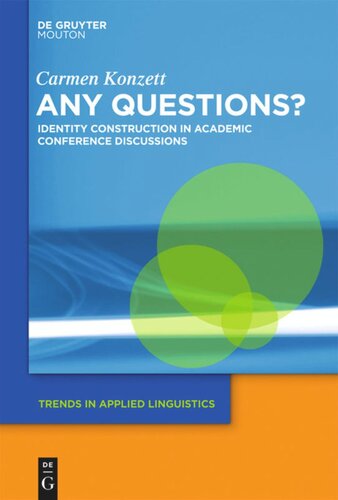

Most ebook files are in PDF format, so you can easily read them using various software such as Foxit Reader or directly on the Google Chrome browser.
Some ebook files are released by publishers in other formats such as .awz, .mobi, .epub, .fb2, etc. You may need to install specific software to read these formats on mobile/PC, such as Calibre.
Please read the tutorial at this link: https://ebookbell.com/faq
We offer FREE conversion to the popular formats you request; however, this may take some time. Therefore, right after payment, please email us, and we will try to provide the service as quickly as possible.
For some exceptional file formats or broken links (if any), please refrain from opening any disputes. Instead, email us first, and we will try to assist within a maximum of 6 hours.
EbookBell Team

4.7
26 reviews This book explores how academics at conferences co-construct their own and each other’s professional identities. It is based on the detailed sequential analysis of audio recordings of conference discussions in the field of the humanities, the working languages being French and English. The analyses show that the delegates who actively participate in these interactions, whether as presenters, chairpersons or as members of the audience, carry out a considerable amount of identity work, attributing self and other to various categories of professional identity. The discussion participants co-construct themselves and each other discursively as academics, professionals, experts, junior or senior members of the scientific community; they also orient to this identity work as an important task to be achieved at conferences. This study provides detailed insights into the fine-grained mechanics of spoken academic discourse. From the perspective of applied research it serves the double purpose of raising experienced researchers’ awareness of their own routines and introducing novices to the discourse practices of academia.